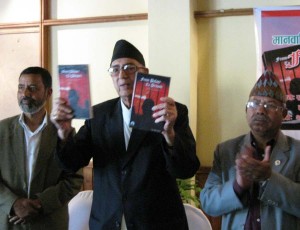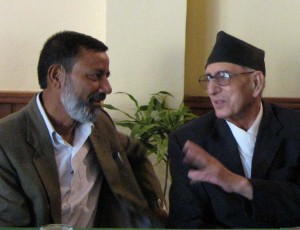My attachment with Bhutan
I have my sentimental and emotional attachment with Bhutan. The reason behind this is I was there in Bhutan long time ago to set the foundation of democratic movement in the country. I am not yet able to forget that history. That has left a set back on me. Like Tek Nath Rizal, even BP was forced to accept solitary confinement with chain on hands; I visited him in his jail. This similarity has connection in having sentimental attachment with Bhutan.
Right after restoration of democracy in Nepal in 1952, I traveled to Bhutan on bus through jungle and reached Kokrajha, a Bhutan’s border with India, where exiled Bhutanese were living. I was there with a feeling that there should also be democracy in Bhutan. Some Bhutanese friends in exile came to take me from Nepal; they said they had arranged everything for the travel. I stayed there for some months. There were protests. The misfortune was that several people were killed. The next misfortune was Bhutanese government expelled me from Bhutan when India alerted Bhutan that Girija Prasad Koirala was advocating for Greater Nepal’s concept inside Bhutan. There is a long history on this which I don’t want to elaborate. The only thing that I want to repeat is that I have sentimental and emotional attachment with Bhutan.
And, everywhere, like for Aung San Suu ki in Burma, I am raising my voice against human rights violations. Regarding support from government, there are two contexts which everybody must understand. Government carries its deals one way, while the party does other. Rizal might have thought that my government didn’t do anything. The party has done everything for him. For any government issues of diplomacy and bilateral relations are important. Bhutanese refugee issue is not just a problem between Nepal and Bhutan, but is a tripartite issue between Nepal, Bhutan and India, and must be resolved accordingly. I stressed on this since refugees first crossed India and reached Nepal, where we accepted them on humanitarian ground. I made such proposals many times, but nothing could be achieved.
Many times in the past, I met the soft-spoken King of Bhutan, who was extra cautious while talking. I asked him to resolve the issue of Bhutanese refugee, which would even harm Bhutan in long run. He agreed to find a solution many times. But, finally he abdicated the throne to his son. When Bhutan was making its new constitution and taking about general election, I met Bhutanese Prime Minister during the SAARC summit in Srilanka. For materializing voluntary abdication of throne, he was told to give voting franchise to all Bhutanese citizens including refugees. That time also he assured, but nothing happened.
Regarding the third country resettlement of Bhutanese refugees, I have been telling with foreigners that Bhutan has not given citizenship status to refugees who have been living in Nepal. They have no country. But, they have come from Bhutan. There are Nepali citizens living in America. When they grow old they like to come to Nepal and die in Nepali soil. Similarly, Bhutanese refugees also have these sorts of sentiments. I asked people of international community why they don’t try to repatriate these refugees. I put pressure on those visiting officials of international communities.
I have seen Bhutanese refugees closely and am rendering all sorts of supports. And, I’ll continue supporting their mission, be possible or impossible. I have been raising voices against suppression on democracy and human rights. I have been to Bhutan and seen those scenes; when Bhutanese army chased me several locals stopped me on the way saying not to return from Bhutan. My support and solidarity is there for you until your mission succeeds. I feel that there is a global scenario which may lead to a solution one day; it’s my personal perception. If people like Tek Nath Rizal have contributed and sacrificed for human rights and democracy, I feel that such contributions never go unrewarded. So, there will be a solution of Bhutanese issue one day.
Jai Nepal!
(These unedited texts have been transcribed from an audio of Late Koirala recorded during a book release program, From Palace to Prison by Tek Nath Rizal on April 16, 2009 in Kathmandu, and photographs by Vidhyapati Mishra)


